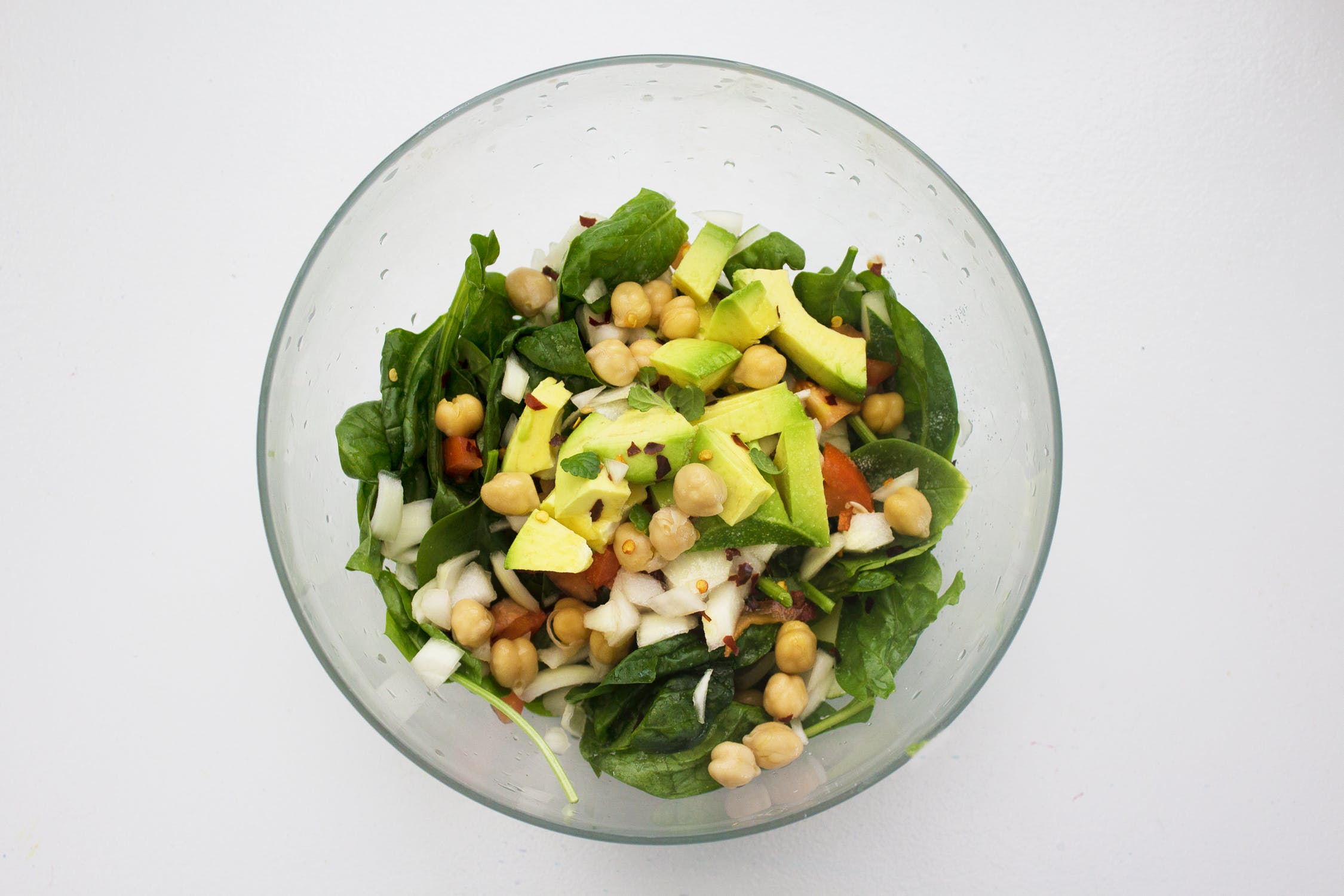Do you want to lose weight but nothing seems to work for you? Try making once again your weight loss plan, but, this time with some pieces of advice from experts. Even if losing weight may seem like an impossible task, these MD experts are here for you.

1. Drink more water
“The first tip I usually recommend to anyone whether it’s patients or people I come across is to increase your water intake,” says Dr. Cedrina Calder, M.D., also known as FitDoc. “The vast majority of people do not get adequate water intake throughout the day. So drinking more water helps because that has been shown to increase your metabolism, and it will also help to give off extra water weight that you may be carrying around, too. And just in general it keeps you hydrated. It’s needed for all different processes that your body does.”
2. Eliminate sugar-sweetened beverages
Dr. Calder said to keep a close eye on beverages that are high in sugar, like juice and soda. “Even some of the beverages that have been pushed on us as being ‘healthy,’ a lot of times are packed with extra sugars,” says Dr. Calder.
3. Drink less alcohol
“[When] drinking alcohol, people sometimes don’t realize how many calories that can pack,” says Dr. Calder. “Like mixed drinks, when you’re adding juices and sodas and things like that with the alcohol, that’s also empty calories that you’re consuming.”
4. Monitor portion sizes
“I think a lot of people are eating larger portions than they realize, so if you’re eating huge portions at a time, you’re obviously going to be taking in more calories than if you were eating smaller portion-sized meals,” says Dr. Calder.
5. Cook at home
“When making food at home, you can control what’s in it when you’re cooking it,” says Dr. Calder. “So rather than eating out all the time, a lot of foods that are offered in restaurants are packed with calories and packed with a lot of ingredients that may not be as healthy.”
6. Prep your food for the day
“If you have food with you, if you are prepared before you go to work for the day and you have a few meals packed with you, you don’t have to worry about being tempted to eat snacks and other things,” says Dr. Calder.
7. Eat less starches
“I think the average American diet is very high in starches,” says Dr. Calder. This is actually bad news for the scale if you’re trying to lose weight. If you’re not that active and you eat a lot of starches, your body won’t use that energy it’s taking in, so it’s just going to be stored as fat and you’re going to gain weight.
“If you’re trying to lose weight, try decreasing the number of starches you’re eating,” says Dr. Calder. “Not eliminating them, I’m not necessarily saying you should go keto. Decrease your amount of starches, and focus on eating more whole grain sources of carbs.”

8. Get physically active
“Not only should you modify your diet, but you need to increase your amount of physical activity,” says Dr. Calder.
“If you’re not doing anything, you want to slowly increase your physical activity for a period of time and aim for the recommended amount of 150 minutes of physical activity per week. People say that in order to do physical activity, you have to have a gym membership, and that’s not true. You can do physical activity by doing household chores, mowing your lawn, watering, cleaning around the house, taking a walk. Any type of movement is physical activity. It doesn’t have to be going to a gym and getting on a machine.”
9. Start resistance training
“With increased muscle mass, you’ll have a higher metabolism,” says Dr. Calder. “That will help you burn off more calories. And as you age it’s protective, because it helps to decrease your risk of injuries [and] your risk of falls. You’ll have better balance and be stronger, decreasing your risk of fractures because you’re at a lower risk of falling as well.”
10. Get enough sleep
“Your body needs to be fully rested,” says Dr. Calder. “You want to aim for 7 to 9 hours a night, but you want to make sure it’s restful sleep, it’s good quality. Not where you’re just waking up every hour, that’s not good sleep that will be helpful. So you want to create an environment where you’re able to get good quality sleep.”
11. Focus on mindful eating
“Really [think] about the food that you’re eating,” says Dr. Calder. “Eat it slowly, savor it. Not in front of a TV or playing on your phone or on the computer. Those things kind of take your mind off of the fact that you’re eating, and you’ll end up eating more than you would if you were just taking time to eat and eat only. Practicing mindful eating will help decrease the amount of food you’re consuming. And obviously, less food, less calories, and that will help with weight loss as well.”
12. Stock up on Greek yogurt
“Greek yogurt is great for palatability, satiation, and protein content,” says Gerard Mullin, M.D., author of The Inside Tract: Your Good Gut Guide to Great Digestive Health.
“Yogurt is also great for feeding the good bugs that live in your intestine, which improves the health of your microbiome, the community of microorganisms that live in your body. More and more research is pointing to probiotics as an effective treatment for weight management and obesity. It’s amazing that feeding the good bugs actually helps people lose weight. Organic, grass-fed yogurt is best because you are getting a better omega fatty acid profile. When animals are fed corn, they produce dairy with more omega-6s, but grass-fed animals produce dairy with more healthy omega-3s.”
13. Cut back on the caffeine
“I try to avoid excessive caffeine,” says Dr. Mamta M. Mamik, MD. “An adult can safely consume up to 400 milligrams of caffeine a day, which is equivalent to four 8-ounce cups of coffee. But drinking any more than that can cause calcium excretion, which, over time, may lead to osteoporosis. Avoiding excess caffeine also helps to ward off uncomfortable withdrawal symptoms like lethargy, insomnia, headaches, and irritability.”
14. Eat more dark, leafy greens
“For me, the best food is dark greens, such as arugula, spinach, and lettuce,” says Donald D. Hensrud, M.D, M.P.H., chair of the Division of Preventive, Occupational, and Aerospace Medicine at the Mayo Clinic College of Medicine and author of The New Mayo Clinic Cookbook. “They are very low in calories, very high in nutrients, and can be prepared in a variety of ways that taste great—many different types of salads, pasta dishes, lasagna, sandwiches, pesto, soups, or even a spinach pie! There’s no downside.”

15. Add in chickpeas to your diet
“Chickpeas are, of course, a nutritional powerhouse, like most legumes. They are a good protein source, and I especially like turning to chickpeas for protein so I don’t need to eat meat,” says David L. Katz, M.D., M.P.H., F.A.C.P.M., F.A.C.P., founding director of the Yale University Prevention Research Center and author of Disease Proof. “They have figured in the human diet since the very dawn of civilization, so they are a nice connection to our ancestral roots. And they figure as well in some of my favorite cuisines from the Middle East. I love good hummus!”
16. Eat more eggs
“[Eggs] have lots of high-quality protein, especially tryptophan,” says Robert Lustig, M.D., M.S.L., Professor Emeritus of Pediatrics, Division of Endocrinology at the University of California, San Francisco (UCSF).
“Protein is satiating, and also you spend more energy converting it to a metabolite that can be burned, which aids in weight management. Eggs got a bad rap in the 1980s because of the cholesterol in the yolk. But it does not raise the small dense LDL, which is the atherogenic particle [the one that forms plaques in your arteries]. Eggs are great by themselves, with many different ways of preparation, or they can be added to foods easily.”
17. Feel fuller with avocados
“I swear by avocados!” says Taz Bhatia, M.D., Founder of CentreSpringMD and author of The 21-Day Belly Fix. “The heart-healthy unsaturated fat in a delicious serving of avocado helps me stay full, which keeps me from snacking too much. Avocados are packed with vitamins C, K, and B6, and they contain pre- and probiotics—keeping my gut healthy!”
18. Add in more nuts (or nut butters)
“The one kind of food that most helps me live healthfully is nuts, and for me, any nut will do,” says Yoni Freedhoff, M.D., medical director of the Bariatric Medical Institute at the University of Ottawa, author of The Diet Fix: Why Diets Fail and How to Make Yours Work.
“Study after study suggests that their inclusion in [a] diet helps prevent many chronic diseases. They are full of protein and healthy fats that leave me feeling fuller longer, which in turn helps me all day long with dietary restraint. One trick I like to do is buy a cheap 1/4 cup measuring cup to store with my container of nuts. Nuts are quite energy-dense, with each 1/4 cup of whole nuts coming in at around 200 calories.”
19. Avoid those added sugars
“I try to avoid foods that contain trans-fats, corn syrup, and added sugars,” says Eugenia Gianos, MD, cardiologist, Co-Clinical Director, Center for the Prevention of Cardiovascular Disease at NYU Langone Medical Center. “Often listed as hydrogenated or partially hydrogenated oils, synthetically engineered trans-fats increase your bad (LDL) cholesterol levels and decrease your good (HDL) cholesterol levels, upping your risk of heart attack and stroke.”
20. Watch out for granola or “energy” bars
“As a plastic surgeon, I’m always thinking about my figure,” says New York City-based physician, Lara Devgan, MD.
“To that end, I never eat energy bars or granola bars. Although they can be tasty, for the amount of calorie-dense carbs and fat they contain, you might as well eat a candy bar. Many of these bars are packed with simple sugars, and they aren’t quite filling enough to substitute for a meal or snack.”
21. Choose when it’s best to have your “cheat” meal
“There isn’t a food I avoid entirely. One cheeseburger never killed anybody unless they choked on it,” jokes Blase Carabello, MD, Professor and Chief, Division of Cardiology at East Carolina University Brody School of Medicine.
“However, I do limit myself to one per month since the dish is high in heart disease-causing saturated fat and served in a processed bun made with refined carbohydrates.”

























